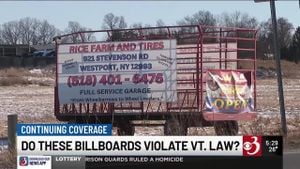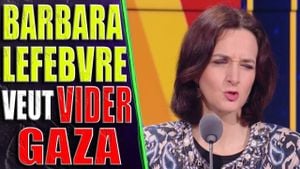The German federal election held on February 23, 2025, saw significant shifts and notable outcomes, particularly within the Cologne III district. Voters turned out enthusiastically, marking 81.8% participation, which is 5.9% higher than the last election. This election promised to reshape the political map, and results reveal the increasing competitiveness among parties, especially between the Greens and the SPD.
Cologne III, encompassing neighborhoods like Nippes, Mauenheim, and Riehl, was fiercely contested. Key candidates included Katharina Dröge of the Greens and Rolf Mützenich of the SPD, both prominent figures with deep roots in the community. Dröge emerged victorious, winning the direct mandate with 26% of the first votes compared to Mützenich's 25.8%. This result marks Dröge’s rise as the first Green candidate to win the direct seat, fundamentally altering the local political scene.
Dröge’s campaign focused heavily on housing affordability, stating her commitment to "a continuing push for extensions and enhancements to rent controls." Mützenich, who had formerly won the district consistently since 2002, expressed gratitude for his tenure but acknowledged the challenge Dröge presented, emphasizing, "I perceive it as a privilege to have served as the faction leader for more than five and a half years." His loss signifies not just a personal setback but raises questions about electoral strategies within the SPD.
Gisela Manderla represented the CDU, adding to the illustrious roster of candidates but came short of securing significant votes compared to the frontrunners. Other candidates included Maria Westphal from the FDP, who advocated for diverse rights within the educational system, and Jochen Haug from the AfD. Naturally, the Kölner Linke, represented by Nadine Mai, made contributions to the electoral discourse, yet failed to capture widespread support.
Voter engagement strategies seemed effective. An increase in polling station entries highlighted the well-executed mobilization efforts by party activists. Electoral committees ensured every resident was able to participate easily. The city provided clear instructions for both postal voting and direct voting at local polling stations.
Dröge’s narrow victory came after tight competition against Mützenich, reflective of broader trends evident nationwide, where the Greens have been making significant gains. Indeed, as the Greens achieved 21.8% of the secondary votes, their triumph indicates growing support for environmental policies and socio-economic reforms.
Notably, the opposition emerged, with the Left Party gaining ground compared to previous elections, and now at 4.3%, testimony to the shifts among the electorate as they desire alternatives to traditional parties.
The SPD's struggles are mirrored nationally, posing inquiries on its future strategy and how it seeks to reconnect with voters who appear increasingly drawn to alternatives like the Greens and the Left.
Across the board, responses to the election have been mixed. Enthusiasm from the victorious factions stands juxtaposed against concern voiced by traditional parties facing the swift currents of change. SPD’s Mützenich must now rely on his party standing within the regional structures, as he is set to enter the Bundestag through the party's list representation.
The result has significant ramifications for the upcoming legislative period, raising the prospect of new alliances or collaborations as parties rethink strategies and broaden their appeal to constituents who made their voices clear this electoral season.
Cologne's political future seems poised for changes as voting patterns reveal rising support for the Greens, compelling traditional parties to rethink their core messages and policies. Each party must now navigate this raised bar within their platforms to appeal to the shifting electorate. This election not only signals change for individual politicians but encapsulates the dynamic nature of current German politics.
Leaders and candidates must strategize effectively as they work to earn the trust of voters, who have demonstrated they are open to change. The power dynamic among parties within Germany is shifting, and all eyes will be on how successfully they can adapt to meet the challenges and opportunities of this new political climate.



